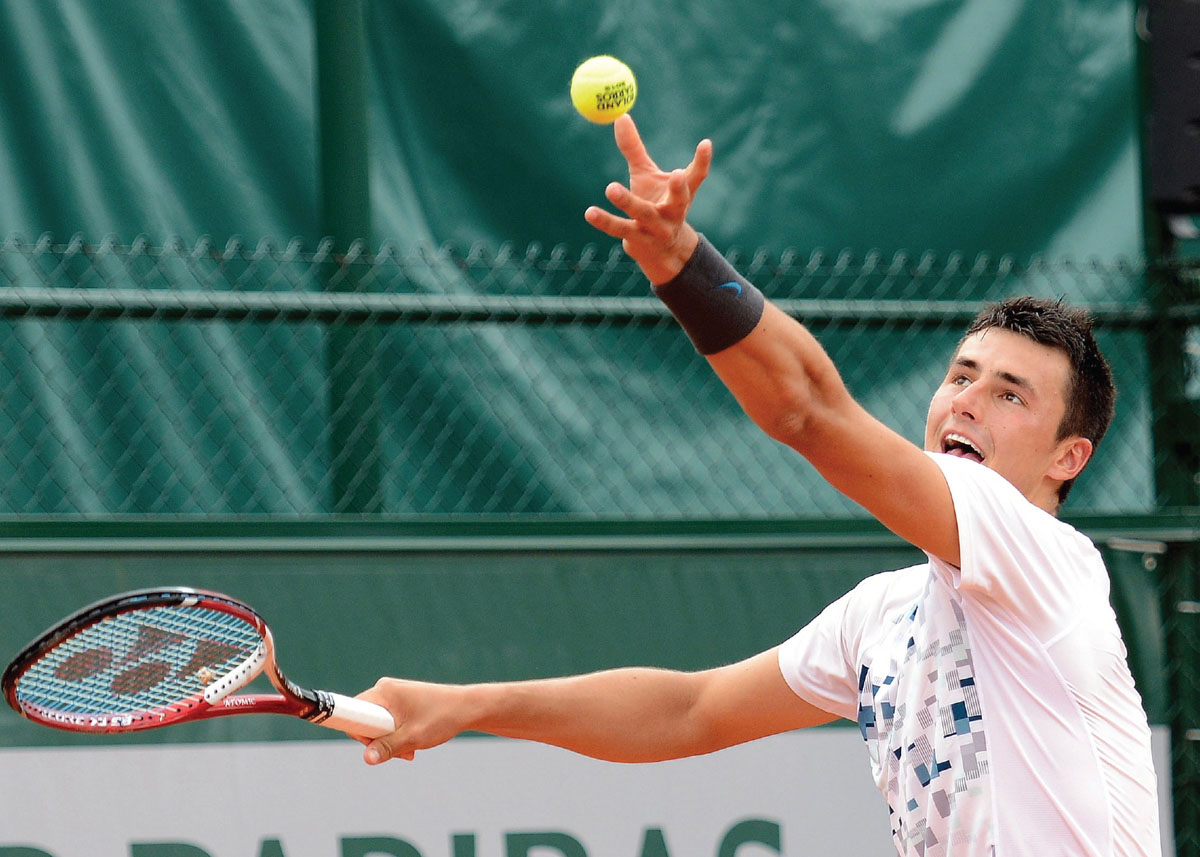
Bernard Tomic
“You probably don’t like me.”—Bernard Tomic
It’s a sad story, one of much promise and much anguish. How will the sad story end? Bernard Tomic was—perhaps could still be—one of Australia’s great tennis stars. But Tomic has been undermined by his inability to deal with the pressures of being in the spotlight, with the relentless demands of the ATP tour, and by his immaturity. At the end of 2017 Tennis Australia chief Craig Tiley expressed concerns about Tomic’s mental well-being and offered him something called “well-being support.”
In early 2016, Bernard Tomic was ranked 17 in the world. At the end of 2017, he was ranked No. 142. His slide has seemed inexorable, and has accelerated. He has seemed more interested in a celebrity life than hard work. It’s not a new story for Tomic. Tennis Australia cut his funding in 2007 while he was still a junior because of his lack of effort at the 2007 French Open juniors. In 2009 he was fined by the International Tennis Federation for walking off the court during a match in Perth (directed to do so by his father, who objected to the officiating). That same year he rejected an invitational practice from his countryman and former world No. 1 Lleyton Hewitt because Hewitt was “not good enough.” In 2012 Tomic had several run-ins with the police, including three fines for traffic violations on the same day: later, he lost his driving license entirely after being caught speeding in a yellow Ferrari. In 2015, Tomic was arrested in Miami on charges of trespassing and resisting arrest after a late-night party in a $10,000-a-night hotel penthouse (the charges were later dropped). He has gained a reputation for deliberately losing matches, and has sometimes been called “Tomic the Tank Engine.” His hotheaded father (criminally convicted in Spain in 2013 for assaulting Bernard’s hitting partner, Thomas Drouet) has threatened that Bernard will quit Australia and play for Croatia.
Despite his talent for self-destruction, some tennis observers have seen great promise in Tomic. In January 2012, when Tomic was already tagged by many as lazy and petulant, Geoff Macdonald, reporting for the New York Times on the Australian Open, wrote: “I watched Bernard Tomic come back from two sets down to beat Fernando Verdasco, and marveled at his quirky, inventive game.” Macdonald said that Tomic reminded him, in many ways, of Andy Murray. Continued Macdonald: “But Tomic differs from Murray, and in fact surpasses him, in his imperturbable match temperament. He won against Verdasco by keeping his wits together from the third set on. By staying level emotionally, Tomic conserved energy and allowed Verdasco to self-destruct.” Kevin Mitchell in the Guardian described Tomic in the 2012 Australian Open as “a player so comfortable with his game that he plays virtually without fear of failure. Shots others would love to take from the practice court to the big stage but dare not are second nature to him. He feathers, slices, feints and dinks.”

When Tomic came on the scene, his potential seemed unlimited.
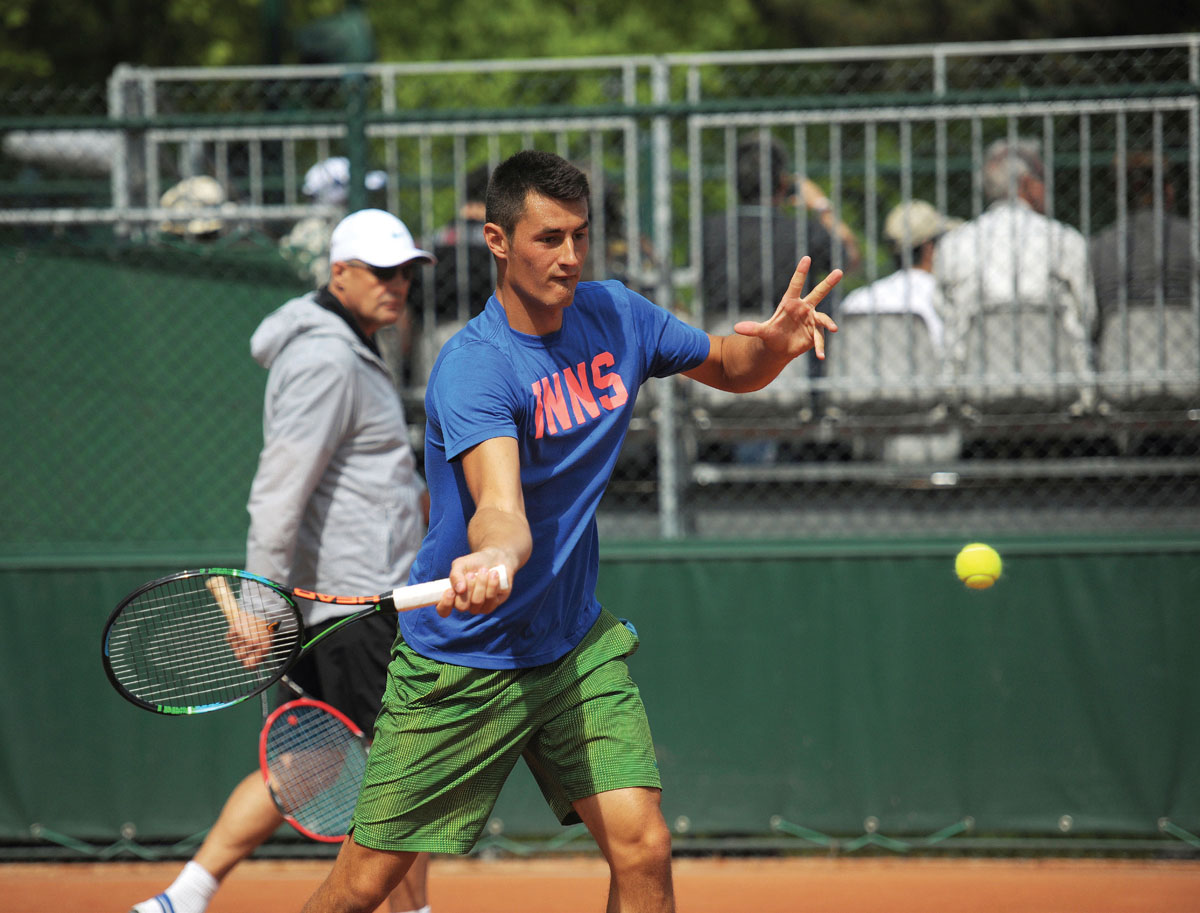
Tomic with his father, John, at Roland Garros 2015.
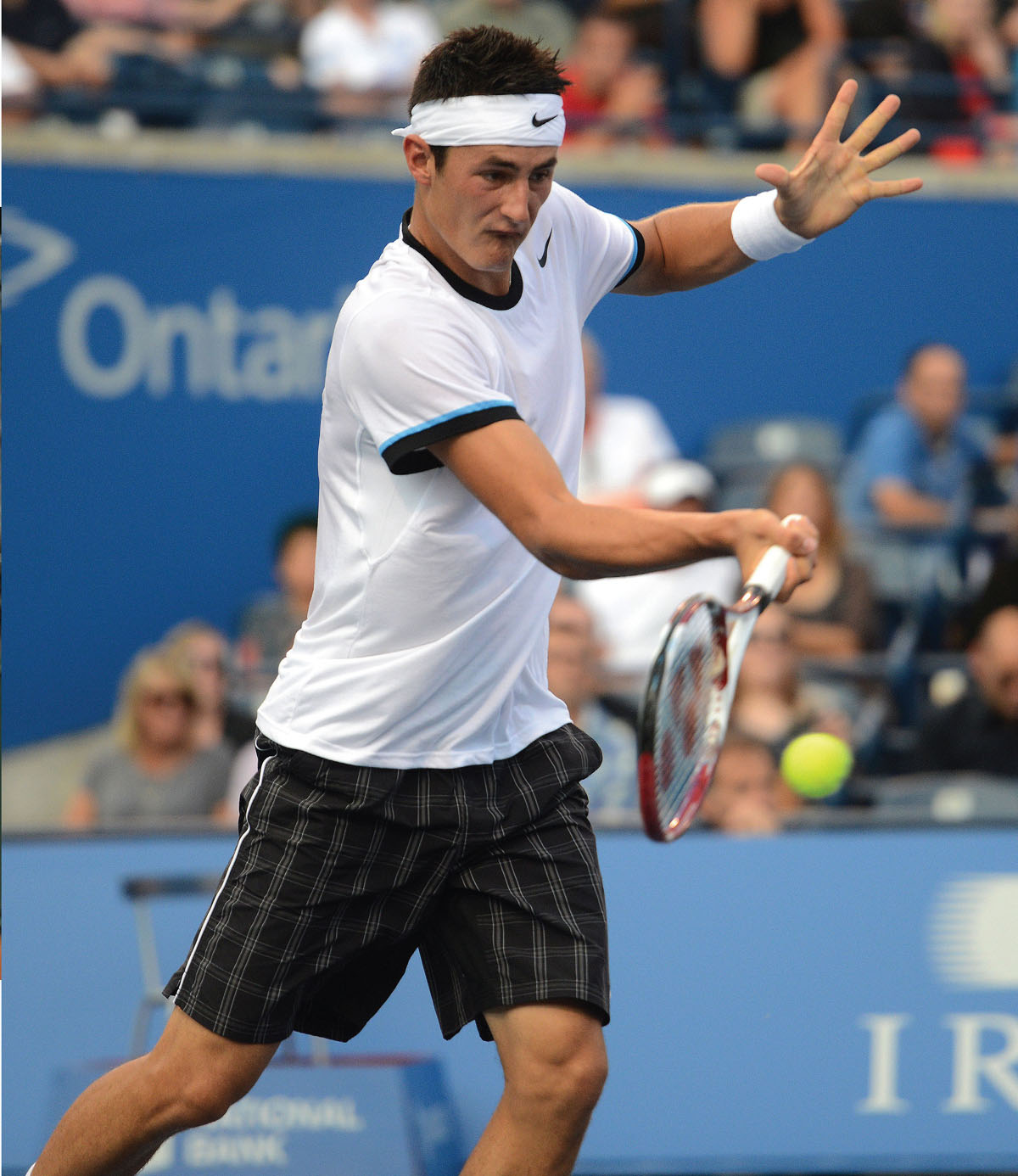
At Rogers Cup 2014.
By 2017, it was a different Bernard Tomic. He lost Wimbledon’s first round, in straight sets, to Mischa Zverev. Later he said he was bored on court and hadn’t really tried. He boasted to reporters that he had so much money he didn’t care if he won or lost. Martina Navratilova (and others) said Tomic should get out of the sport if that’s how he feels. “It’s disrespectful to the sport and disrespectful to the history of the sport,” said Navratilova. “If you can’t get motivated at Wimbledon it’s time to find another job.” In an interview with the Melbourne Herald Sun after Wimbledon, he said, “You probably don’t like me but, at only 24, you guys can only dream about having what I have at 24. End of the day, don’t like me or whatever. Just go back dreaming about your dream car or house while I go buy them.” He subsequently told another interviewer, “I don’t regret what I said. That’s why I said it, to piss a few people off.”
He approached the 2017 US Open angry, demoralized, and in disarray. He told one journalist, “I feel holding a trophy or, you know, doing well, it doesn’t satisfy me anymore, it’s not there. So I couldn’t care less if I make a fourth-round US Open or I lose first round.” It’s a good thing he didn’t care, because he lost the first round, to Gilles Müller. That meant a new slump in the ratings. It was reported that a few days later he spent $50,000 in one night at an exclusive Melbourne nightclub. He was quoted as saying, “It [$50,000] might seem ridiculous to other people, but then again it is peanuts to me.” He lost in the opening round of the October 2017 Vienna Open to qualifier Pierre-Hugues Herbert, after serving underarm at a key moment, rounding out a terrible year. The Vienna Open was his 13th first-round loss in 2017 from nineteen tournaments.
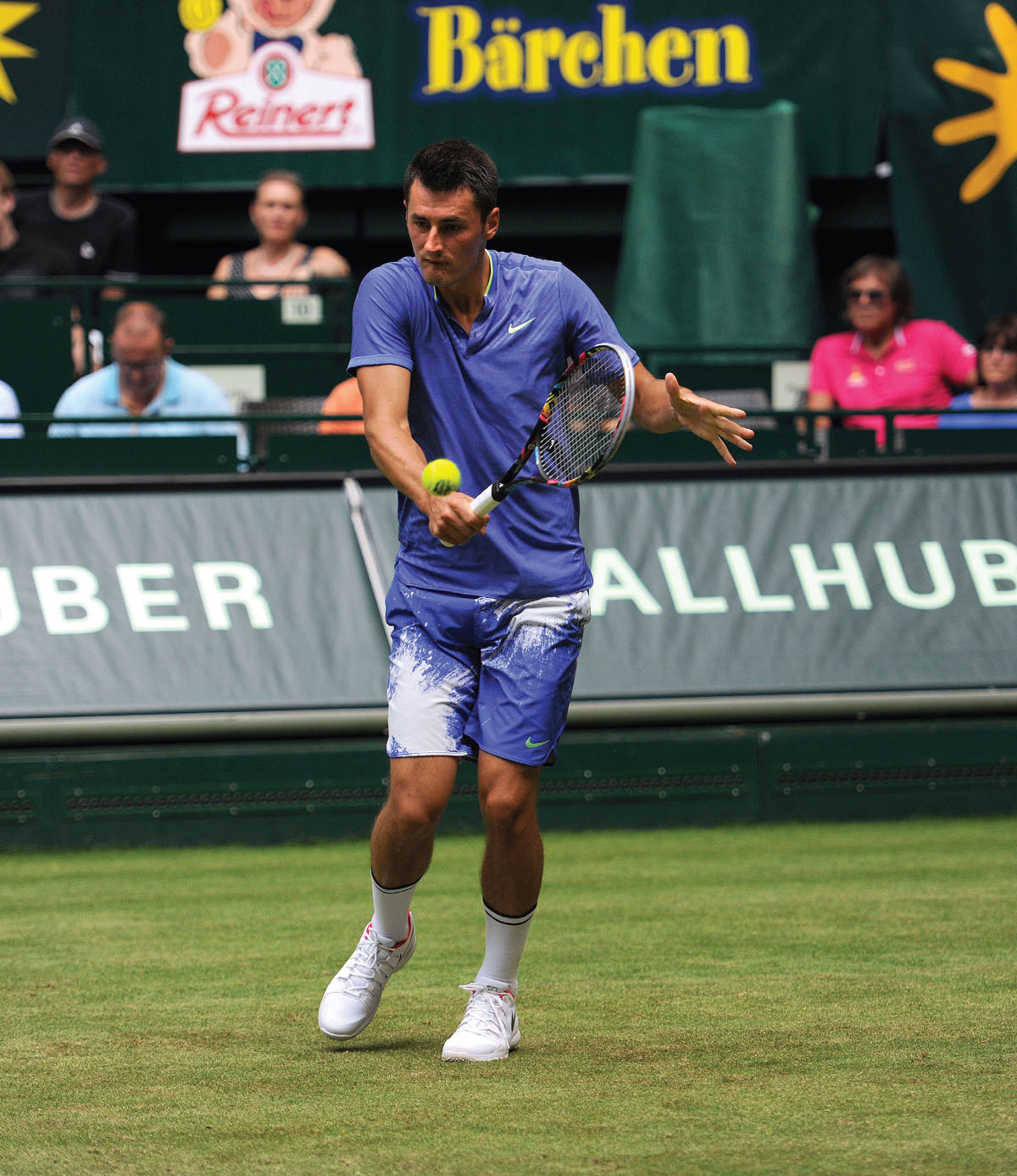
A dispirited Tomic at Halle, just before Wimbledon 2017.
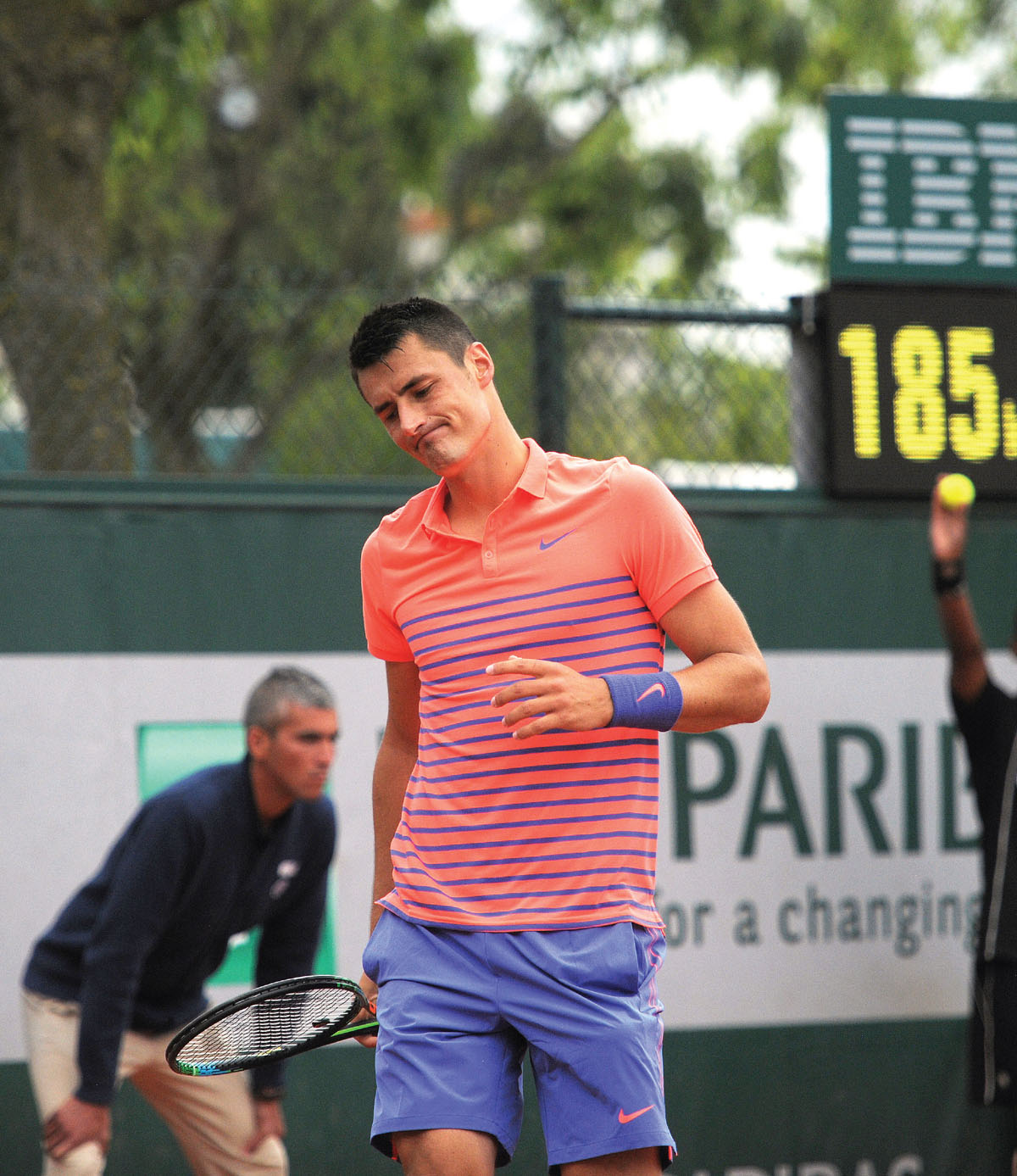
A captive princeling?
Bernard Tomic was born in Stuttgart, Germany, in 1992, of a Croatian father and a Bosnian mother. They moved to Australia when he was three. His father drove a taxi. He quit school when he was sixteen. In a July 2017 interview with Australian television’s Channel 7, Tomic said, “We came to Australia with basically nothing, it was tough. People don’t see. We had a car—$200, $300. Now, maybe going buying cars half a million dollars to a million dollars, it’s my choice. Living in these lavish houses, property around the world, it’s my choice. It’s something I’ve worked for and I’ve earned. Being 24 and achieving, in my opinion, a lot in the sport, it’s affected me a little bit mentally and emotionally. So now it’s just about finding my balance, and pushing on the next 10 years, and being successful even more.” Bernard’s younger sister, Sara, is also a tennis player, but not of her brother’s quality.
In July 2017, after Tomic’s disastrous appearance at Wimbledon and his equally disastrous comments afterward, Jacob Steinberg of the Guardian argued that the right thing to do upon hearing about the bad behavior of players like Tomic is to show a bit of empathy: “We can make an attempt to listen and understand when they speak. We can try to locate our empathy when these young people reveal their vulnerability in public and try not to push them away, to make them feel as if the world is against them by chastising and lecturing.”
Or as Barney Ronay, also writing in the Guardian in July 2017, commented, “All that seems certain is that we should be kind, that we should save our repulsion for the system that gave us a generation of captive princelings.”